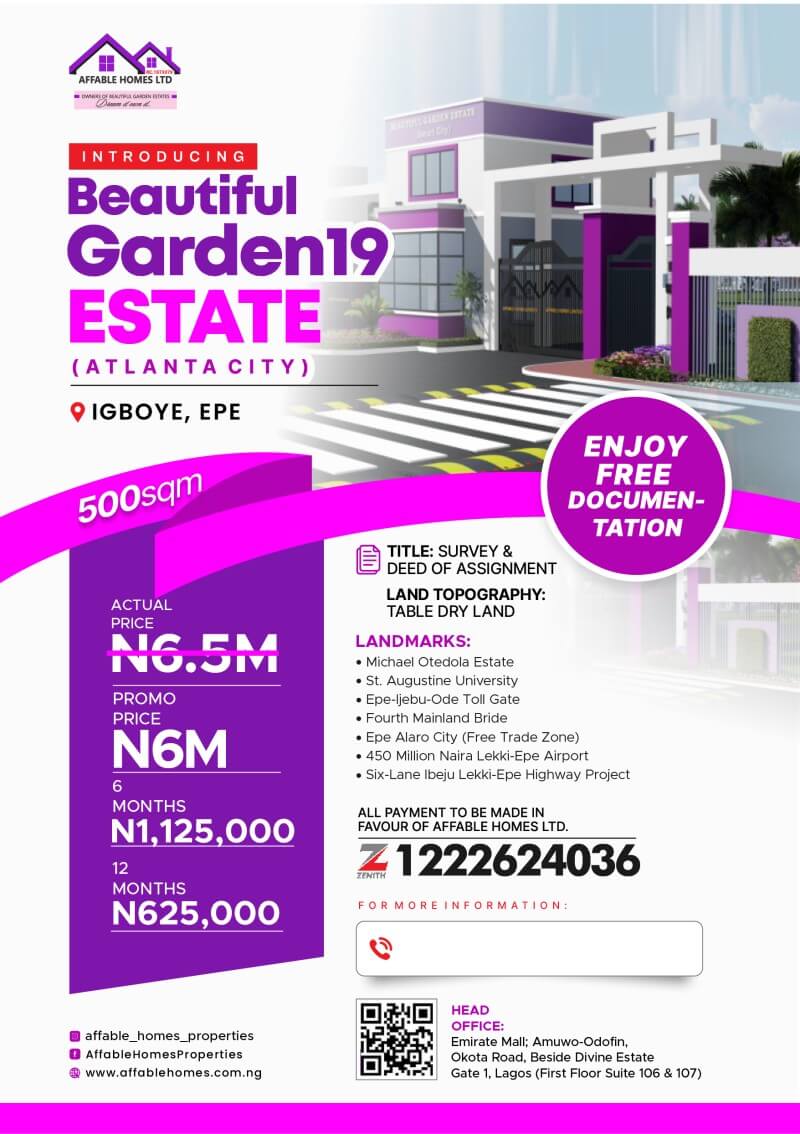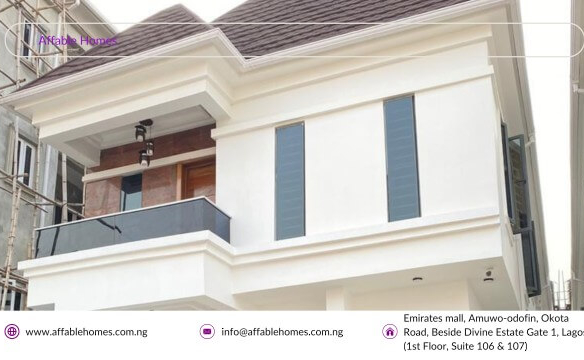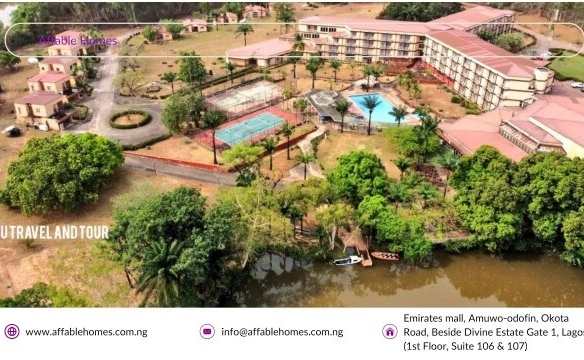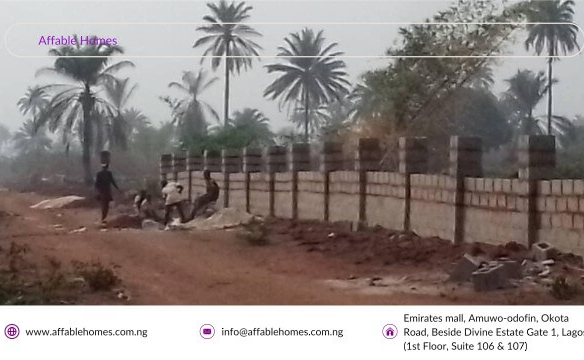Land Use Plans are critical factors you need to understand before committing to real estate investment in Lagos, Nigeria. Many buyers make the mistake of purchasing land without verifying its purpose. They only realize later that they cannot use it the way they intended.
This can lead to government fines, forced demolition, or even outright loss of property.
Lagos, Nigeria’s economic capital, has a structured urban development plan that determines how every piece of land should be used.
For residential, commercial, industrial, or agricultural purposes, each plot falls under a government-approved zoning system that dictates what can and cannot be built there.
This guide breaks down the different land use plans available in Lagos, why they matter, and how to confirm a land’s designated use before making a purchase.
Understanding Land Use Planning in Lagos
Land use planning is how the government organizes land to ensure the city develops in an orderly and sustainable manner. Without this structure, Lagos would become chaotic, with factories next to homes, schools beside fuel depots, or markets inside quiet estates.
The Lagos State Ministry of Physical Planning and Urban Development (MPPUD) oversees land zoning across the state. Every area falls under a specific land use designation, meaning there are legal restrictions on how the land can be used.
For instance, you cannot build a residential home on land zoned for industrial purposes. Similarly, you cannot construct a shopping mall in an area marked as a green zone (reserved for parks and natural spaces). Violating land use regulations can lead to demolition, fines, or revocation of ownership.
This is why understanding the land use plans is essential before purchasing a property in Lagos.
Also Read:
- Why Real Estate Investing is Better Than Stock Investing in Nigeria
- Why Location Matters When Investing in Real Estate in Nigeria
- Different Types of Due Diligence You Must Do Before Buying a Property
Types of Land Use Plans in Lagos
Lagos has six main land use categories: residential, commercial, industrial, agricultural, recreational, and mixed-use. Each category determines what type of buildings or activities are allowed on that land.
1. Residential Land Use
Residential land is exclusively for housing developments. This means only homes, estate properties of various sizes, and residential buildings can be constructed in these areas. The government regulates the type of housing permitted based on population density.
- Low-Density Residential Areas: These are exclusive neighborhoods with large compounds and detached houses, such as Banana Island, Ikoyi, and parts of Lekki Phase 1. The land in these areas is expensive and strictly regulated to maintain a quiet, high-end living environment.
- Medium-Density Residential Areas: These locations accommodate semi-detached houses, duplexes, and smaller estates. Areas like Surulere, Gbagada, and some parts of Ajah fall into this category.
- High-Density Residential Areas: These areas contain high-rise buildings and apartment complexes designed to house many people. Examples include Mushin, Yaba, and some parts of Agege and Oshodi.
When buying residential land, it is essential to confirm the exact density zoning because some areas may prohibit the construction of blocks of flats or commercial activities.
2. Commercial Land Use
Commercial land is for business activities, including offices, shopping malls, markets, hotels, and entertainment centers. The regulation around these areas is quite heavy because they impact traffic flow, economic activity, and infrastructure development.
Some of Lagos’s prime commercial zones include:
- Victoria Island and Ikoyi – Home to many corporate headquarters, banks, and luxury hotels.
- Lagos Island – A hub for trading and business centers.
- Ikeja (Alausa) – The state’s commercial capital, with government offices, businesses, and shopping malls.
- Lekki-Epe Expressway – A rapidly developing corridor with growing commercial estates and tech hubs.
If you intend to use your land for business purposes, ensure it is zoned for commercial use before purchase. Converting residential land to commercial use requires government approval, which can be expensive and time-consuming.
3. Industrial Land Use
Industrial land is set aside for manufacturing, production, and heavy-duty business operations. The government carefully regulates these areas to prevent pollution, noise disturbance, and hazards to residential neighborhoods.
Major industrial areas in Lagos include:
- Oshodi-Isolo – One of Lagos’s oldest industrial zones, with factories and manufacturing plants.
- Apapa – Popular for its proximity to the Lagos ports, with warehouses and shipping industries.
- Ikorodu Industrial Layout – A growing hub for small and medium-scale industries.
- Agbara Industrial Estate – Though technically outside Lagos, this area houses many multinational companies due to its proximity to the city.
Industrial land is not meant for residential purposes, and setting up homes in these areas can be hazardous. Buyers looking to invest in warehouses, production plants, or logistics businesses should ensure the land is correctly zoned for industrial use.
4. Agricultural Land Use
As the name implies, the Government allocates agricultural land for farming, livestock rearing, and agro-business activities. It is mostly found on the outskirts of Lagos and is significantly cheaper than residential or commercial land.
One of the biggest risks of buying agricultural land is attempting to convert it into residential or commercial use without government approval. Many unsuspecting buyers purchase cheap farmland, hoping to develop estates, only to have the government revoke the land. Always verify the permitted land use before buying.
5. Recreational and Green Zones
Lagos has areas zoned for recreational purposes, such as parks, nature reserves, and waterfronts. You cannot use these zones to develop private or commercial properties.
Some popular recreational zones include:
- Lekki Conservation Centre – This area is protected by the government for environmental conservation.
- Freedom Park (Lagos Island) – An urban green space for public use.
- Beaches along the Lekki-Ajah coastline – Government-regulated spaces for tourism and leisure.
Before purchasing land in these areas, check if there’s an allowance for private development. Some recreational zones can only accommodate businesses related to tourism, sports, or entertainment.
6. Mixed-Use Land
Mixed-use land is one of the most flexible land use types in Lagos. It allows a combination of residential, commercial, and sometimes light industrial activities in the same area.
For example, some parts of Lekki, Surulere, and Ikeja allow both houses and businesses to operate legally within the same zone. Many modern estate developments in Lagos now include mixed-use zoning. In such places, you can build residences alongside office spaces, malls, and hotels.
Mixed-use zones offer high investment potential because they attract businesses and residents simultaneously. However, the level of mixed-use allowed varies, so always confirm with the Lagos State Planning Authority before purchasing.
How to Verify Land Use Before Buying
To avoid purchasing land that you can end up not using for a definite purpose, follow these steps:
- Visit the Lagos State Ministry of Physical Planning and Urban Development (MPPUD) to check the official zoning.
- Obtain a survey plan and confirm its registered land use with the state government.
- Hire a real estate lawyer to investigate the land title and verify its usage.
- Ask for an Approved Layout Plan from the seller or estate developer.
Never take a land seller’s word for it—always verify directly from the government before making payments.
Also Read:
- Why Women Should Invest in Real Estate in Nigeria
- 5 New Infrastructural Developments in Enugu Attracting Real Estate Investors
- What is the Difference Between Excision and Governor’s Consent in Lagos?
Final Thoughts
Understanding land use plans and Freehold Land Title in Lagos is essential for any serious real estate investor or homebuyer. If you buy land without confirming its use can lead to costly mistakes, legal troubles, or financial losses.
Are you purchasing land for residential, commercial, industrial, agricultural, or mixed-use purposes, then always ensure it aligns with government zoning regulations to secure your investment for the future.
To explore any of our real estate investment packages like land banking, retirement plan, kids education investment plan, trade apprenticeship plan or if you want to purchase some plots where you will have residential or commercial buildings, send an email to us at info@affablehomes.com.ng or call +2349134056630.





